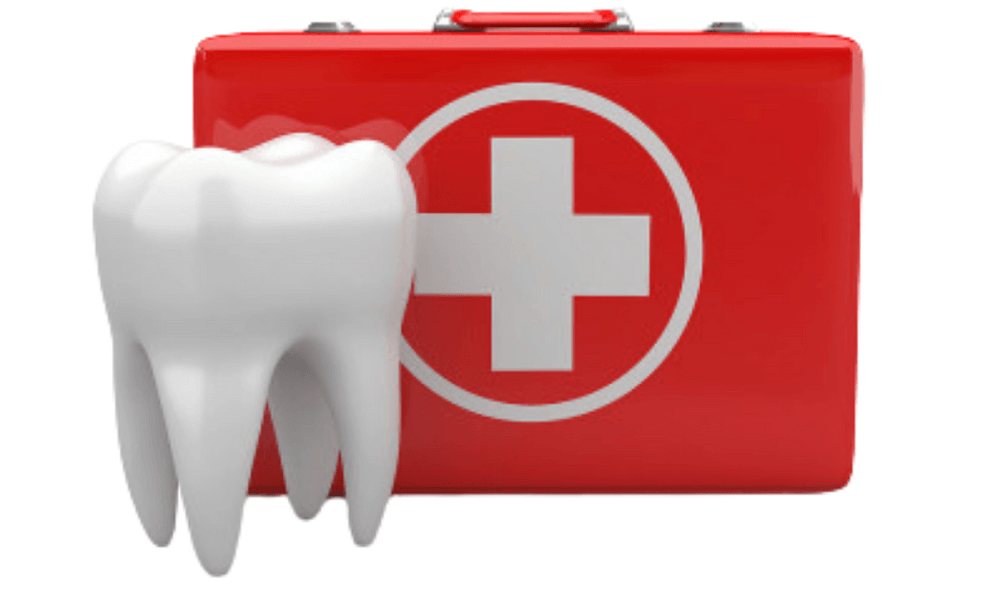What to Do in a Dental Emergency?
Dental emergencies can occur at any time, causing discomfort, suffering, and concern. Knowing how to respond to a dental emergency can mean the difference between keeping your oral health and risking further difficulties. This blog will provide a detailed guide to what to do in typical dental emergencies, assisting you in taking the necessary steps until you can see a dentist for emergency treatment.
Knocked-Out Tooth
A knocked-out tooth is a dental emergency that requires immediate attention to increase the chances of saving the tooth. Here’s what to do:
- Handle the tooth by the crown (top) and avoid touching the root.
- Rinse the tooth gently with water to remove dirt, but do not scrub it.
- If possible, try to put the tooth back into its socket. If that isn’t an option, put it in a jar of milk or a saline solution.
- For the best chance of saving the tooth, seek emergency dental care within 30 minutes.
Cracked or Broken Tooth
- Rinse your mouth gently with warm water to clean the area.
- Apply a cold compress to the affected area to minimize swelling and pain.
- Collect any broken pieces of the tooth and take them with you to the dentist.
- Contact your dentist immediately for an appointment.
Severe Toothache
Pain and sensitivity might be caused by a cracked or broken tooth. Here’s how to deal with it.:
A severe toothache can be excruciating and disrupt your daily life. Here’s what you can do:
- Rinse your mouth with warm water to clean the area around your mouth.
- Floss gently to remove any food particles that may be causing the pain.
- Temporary relief can be obtained from over-the-counter pain medicines. Follow the dose recommendations exactly.
- Avoid placing aspirin directly on the gums, as it can damage the tissues.
- Contact your dentist in The Colony to schedule an appointment to address the underlying cause of the toothache.
Lost or Damaged Dental Restoration (Crown, Filling, etc.)
If you lose a dental crown or filling, it’s essential to take action promptly:
- Try to keep the restoration if it’s intact.
- Apply a dental cement or temporary filling material (available at most pharmacies) to cover the exposed tooth.
- Avoid chewing on the affected tooth until it can be repaired or replaced by your dentist Castlehills Lewisville.
- Contact your dentist for an appointment to address the issue.
Dental Abscess or Infection
A dental abscess or infection is a serious dental emergency that requires immediate attention to prevent the infection from spreading. Here’s what to do:
- Rinse your mouth with warm saltwater to help alleviate pain and reduce the spread of infection.
- Over-the-counter pain relievers can provide temporary relief.
- Do not try to drain the abscess on your own.
- Seek an emergency dentist in Castle Hills as soon as possible to receive proper treatment, which may include antibiotics or drainage of the abscess.
Broken Orthodontic Braces or Wires
If you have orthodontic braces or wires that break or poke into your mouth, follow these steps:
- Use orthodontic wax or a small piece of gauze to cover the sharp or protruding area to prevent it from causing further irritation.
- Contact your orthodontist for guidance on whether to come in for an emergency appointment.
Soft Tissue Injuries
Injuries to the lips, cheeks, gums, or tongue can be painful and may result from accidents or trauma. Here’s what to do:
- Clean the injured area gently with warm water.
- Apply pressure with a clean cloth or gauze to control bleeding.
- Use a cold compress to reduce swelling and alleviate pain.
- If the bleeding is severe or doesn’t stop after 15-20 minutes of continuous pressure, seek immediate medical attention or go to the nearest emergency room.
Foreign Object Stuck Between Teeth
If you have something lodged between your teeth that you can’t remove, follow these steps:
- Try gently flossing around the area to dislodge the object.
- Sharp objects and excessive force should be avoided since they might cause gum and tooth damage.
- If you can’t remove the object, contact your dentist for assistance.
Dental emergencies can be distressing, but knowing how to respond promptly and effectively can make a significant difference in minimizing pain, preserving your oral health, and preventing further complications. Remember that it’s essential to seek professional dental care as soon as possible in any dental emergency. Additionally, scheduling regular dental check-ups can help detect and address potential issues before they become emergencies, ensuring the health and longevity of your smile.





 |
|